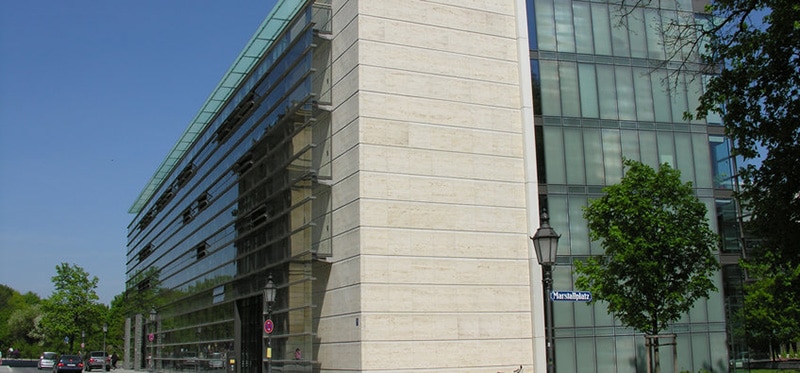The Max Planck Institute for Innovation and Competition is committed to fundamental legal and economic research on processes of innovation and competition and their regulation. The research focuses on the incentives, determinants and implications of innovation. With an outstanding international team of scholars and excellent scientific and administrative infrastructure including our renowned library, the Institute hosts academics from all over the world and actively promotes young researchers. The Institute informs and guides legal and economic discourse on an impartial basis. As an independent research institution, it provides evidence-based research results to academia, policymakers, the private sector as well as the general public.
Since its founding 1966, the Max Planck Institute for Innovation and Competition has been committed to the development of intellectual property law and competition law on the basis of sound scientific principles. With the establishment in 2013 of the economics department “Innovation and Entrepreneurship Research” under the direction of Professor Dietmar Harhoff, PhD, the Institute took account of the fact that legal aspects are not the only factors determining the regulation of these processes. Rather, economic considerations represent an important, complementary set of instruments to measure the effects of legal norms. Conversely, economists also increasingly use insights from the field of law to make more realistic models of the processes and institutions they study and to examine them empirically. Using such complementary approaches in research allows for a better assessment of particularly those new phenomena that generate ever more interest in the worlds of business, politics and civil society.
The expanded methodological spectrum enables the Institute to adapt to the new status quo in science, technology, business, politics and society. This is all the more important as the call for science to provide evidence-based political consulting has grown louder in recent years: Data-based analyses are called upon to clarify causal relationships and display correlations that are generated by a variety of effects. Precisely with respect to possible adjustments of legal foundations, the economic sciences department of the Institute can provide considerable research support with such analyses.
